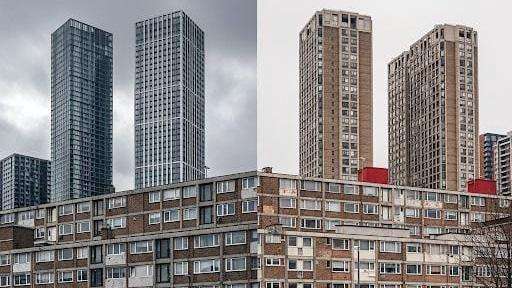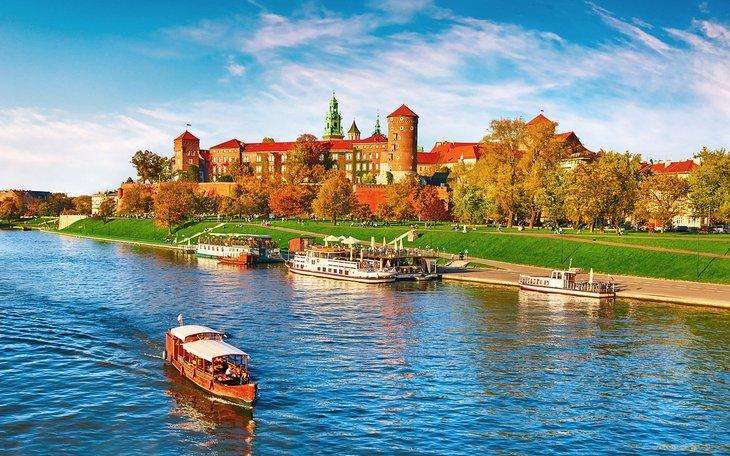Bangladesh should increase multilateral engagement with East European countries as Romania and Bulgaria became full members of the Schengen zone last month, expanding the borderless area to 29 members and ending a 13-year wait for the two eastern European countries, said Bangladesh diplomats, manpower exporters, business leaders and policymakers.
The expansion, made possible when Austria and other members dropped their objections to the former communist countries joining, officially took place at midnight (2200 GMT) on January 1, marked by ceremonies at various border posts.
Romania and Bulgaria, both members of the European Union since 2007, were partially included in the Schengen zone in March, eliminating border checks at ports and airports.
But Austria had threatened to veto their full entry over migration concerns, which meant that controls still applied at land border crossings.
Vienna backed off its veto threat in December after the three countries reached a deal on a "border protection package", clearing the way for Romania and Bulgaria, two of the EU's poorest countries, to join Schengen.
Created in 1985, the zone will now include 25 of the EU's 27 members, as well as Switzerland, Norway, Iceland and Liechtenstein, covering a total population of more than 400 million people.
Romania and Bulgaria had met the Schengen zone's technical requirements for membership since 2011.
But "member states objected every time" they tried to join, analyst Valentin Naumescu told AFP.
That became "a source of frustration exploited by anti-EU parties, which alleged Romania was being treated unfairly", he said.
The resentment came into play in Romania's recent presidential elections, in which far-right candidate Calin Georgescu surged to a surprise first-round win, before the polls were cancelled amid claims of Russian interference.
Bangladesh exported a total of 464 workers to Bulgaria, 3543 workers to Romania, 3894 workers to Croatia, 318 workers to Hungary, 551 workers to Kosovo, 32 workers to Latvia, 203 workers to Poland 295 workers to Lithuania, 1299 workers to Serbia, 87 Servia, 843 Seychelles, 522 North Macedonia and 238 workers to Bosnia–Herzegovina.
A leader of the Bangladesh Association of International Recruitment Association (BAIRA) while talking to this correspondent sad that Bangladeshi workers have to visit New Delhi to get visa of the east European countries. This process of getting visa of East European Union is very expensive and time-consuming that are getting very complicated with the India restricting issuance of visa to Bangladeshis after July-August revolution, sources said.
The number of Bangladeshi workers will increase 2/3 times provided consular services of Eastern European Union countries is resumed in Bangladesh, said a BAIRA leader.
Several thousand Bangladeshi are interested in pursuing higher education in some eastern European Union countries and experience herculean in getting visa.
Suha Areebah, a former student of the Southbridge School and a student of the BRAC University, while talking to the correspondent said that she got enrolled with a medical college in Latvia. Her parents and she got unbearable hassles in getting Indian visa . She visited New Delhi last month and again this New Delhi to get visa of Latvia.
Bangladesh students are getting deep interest in pursuing higher education in Bulgaria and Romania, Latvia, Lithonia, Estonia and Poland , but experience difficulties in getting visa of the east European counties.
Former Secretary General of Bangladesh Association of International Recruiting Agencies (BAIRA) and incumbent Director of East West Human Resource Center Ltd. Ali Haider Chowdhury while talking to this correspondent said that the Bangladesh government should engage with EU countries to open consular service in Dhaka to speed up the migration process.
Despite demand in the labour market in EU countries, Bangladesh can’t send required workers to EU countries as countries concerned have no consumer service in Bangladesh.
Ali Haider Chowdhury said that the Bangladesh government should engage talks with EU countries to launch consular service in Dhaka as intending Bangladeshi workers need to go to New Delhi to get a Schengen visa. He said even getting an Indian visa is time consuming and sometimes the visa requests are rejected by the High Commission of India. He said even after getting an Indian visa, an intending visa seeker has to stay one month in New Delhi to process his her EU visa.
While talking to this correspondent, a high official of the Ministry of Foreign Affairs said that the government of Bangladesh can construct high-rise condominiums at Gulshan and offer to East European countries to set up their mission or consular services.
As running a mission in Bangladesh is highly expensive, no east European country has not opened a mission in Dhaka.
Source said that the eastern EU member states like Bulgaria, Croatia, the Czech Republic, Estonia, Latvia, Lithuania, Hungary, Poland, Romania, Slovakia and Slovenia have no mission or consular service in Dhaka.
A Rajdhani Unnayan Kartripakkha (RAJUK) official while talking to this correspondent said that the Bangladesh government still has some land properties at Gulshan that it can offer to some European countries to set up missions or consular services. In recent times, the Embassy of Italy handed the possession of the Gulshan land property to the Bangladesh government.
In Dhaka (At Baridhara), Germany and France have shared the same building to run their mission. A Mofa official said some European countries including eastern EU member states will be interested to set up missions or consular services if land properties or condominiums are offered to them, said a Mofa official.
The house rent at Gulshan and Baridhara is highly expensive and lifestyle is also as expensive as in European countries, said a Bangladesh diplomat who works in an EU country.
Meanwhile, Bangladesh has some missions in some East European countries like Warsaw in Poland, Bucharest in Romania, Moscow in Russian Federation, Tashkent in Uzbekistan and Ankara in Republic of Turkey.
Meanwhile, the Delegation of the European Union (EU) to Bangladesh and the International Labour Organization (ILO) on July 8, 2024 signed an agreement for the Talent Partnership Project, which will facilitate safe and regular migration of skilled workers from Bangladesh to EU Member States to help meet growing skilled labour shortages in EU Member States.
The growth model of the eastern EU member states (Bulgaria, Croatia, the Czech Republic, Estonia, Latvia, Lithuania, Hungary, Poland, Romania, Slovakia and Slovenia) will be heavily affected in the coming years by the region’s population trends. Some of these countries, such as Latvia and Bulgaria, are among the worst globally in terms of population decline. Declining populations in this region will drag on countries’ economic growth potential and will increasingly force governments to address labour shortages, through policies such as increases in pension ages and relaxation of immigration rules. Declining populations will place eastern EU member states at a stark disadvantage compared with other emerging markets and will be the single largest drag on long-term growth.
The Delegation of the European Union (EU) to Bangladesh and the International Labour Organization (ILO) on July 8, 2024 signed an agreement for the Talent Partnership Project, which will facilitate safe and regular migration of skilled workers from Bangladesh to EU Member States to help meet growing skilled labour shortages in EU Member States.
The Talent Partnership programme is an initiative referenced under the European Union’s New Pact on Migration and Asylum, aiming to match skilled labour supply in Third Countries with skilled labour demand in EU Member States while ensuring safe and regular mobility pathways for skilled migrant workers in compliance with international human rights and labour rights. In this ways the Talent Partnership programme aims to develop a mutually beneficial relationship between Bangladesh and EU Member States on skilled labour migration.
Neeran Ramjuthan, Office in Charge of the ILO in Bangladesh, said “The Talent Partnership aims to contribute to matching and balancing skilled labour demand and supply, supporting economic growth, and enhancing the safety and recognition of skilled migrant workers, while fostering collaborative opportunities between EU Member States and Bangladesh for mutual benefit and in accordance with international labour standards.”
Meanwhile, Chief Adviser of Bangladesh Professor Muhammad Yunus recently held a constructive and meaningful meeting with the EU diplomats based in Dhaka and New Delhi, and sought their participatory cooperation in some urgent issues relating to Bangladeshis, sources said…….
Chief Adviser Professor Muhammad Yunus on Monday called upon the European Union (EU) to relocate its visa centres for Bangladeshis from Delhi to Dhaka or to any other neighbouring country.
He made the call when a 19-member EU delegation, led by Michael Miller, Head of Delegation of the European Union to Bangladesh, met him at the Chief Adviser's Office in Tejgaon here.
During the meeting, chief adviser said as India has restricted visas for Bangladeshis, many students are unable to go to Delhi to get visas for EU countries.
As a result, he said, uncertainty has arisen about their educational careers, while universities in Europe are not getting Bangladeshi students.
“If the visa office is shifted to Dhaka or any neighbouring country, both Bangladesh and the European Union will be benefitted,” he added.
As many as 15 EU diplomats presented their views in the meeting that lasted for two and half hours.
During the meeting, they discussed the commitments and actions of both sides in labour rights, trade facilitation, climate change, human rights, the International Crime Tribunal Act, Rohingya repatriation and building a sustainable future.
The chief adviser focused how corruption and money laundering affected the banking system in Bangladesh.
Mentioning that misinformation is being spread against Bangladesh on a large scale, Prof Yunus sought EU’s cooperation in stopping the misinformation.
He said Dictator Sheikh Hasina and her associates, who were forced to flee the country in the July uprising, are trying to destabilize the country with the huge amount of money they laundered.
The chief advisor also mentioned about the exchange of views with representatives of different political parties and religious communities of Bangladesh held aiming to forge a national unity and maintaining communal harmony.
He also briefed the EU representatives in detail about the interim government’s reforms and election process.
Foreign Affairs Advisor Md. Touhid Hossain, who participated the meeting said Bulgaria has already shifted its visa centre for Bangladeshis to Indonesia and Vietnam. He urged other countries to follow the same process.
The EU representatives expressed their full support to the chief adviser in the reform process and vowed to stand by him in the goal of building a new Bangladesh by providing advice and recommendations
Meanwhile, though Bangladesh is working to increase engagement with East European countries through export of goods and manpower, as of now the engagement with that region is still low compared to the expectation of the stakeholders concerned, sources said.
Bangladesh exports are mainly consented to some west European Union countries like Germany, France, Italy, Spain and UK while export to rest of the European countries are less compared to expectations of the Bangladesh government, sources in the Export Promotion Bureau (EPB).
According to statistics of the Export Promotion Bureau (EPB), Bangladesh exported goods worth 51,542.70 million US dollars to different counties during July-May period of the 2023-24, over 50 per cent entered the EU markets. Out of total exports to EU countries, Bangladesh exported the maximum portion to the west European Union countries.
As population in the European Union including East European countries are decreasing, the Bangladesh government took up a project named ‘Talent Partnership’ with the Delegation of the European Union (EU) to Bangladesh and the International Labour Organization (ILO) to help migrate 3,000 Bangladeshis to European countries, sources in Bureau of Manpower, Employment and Training (BMET).
Under the Talent Partnership Project, students, graduates and skilled workers from Bangladesh will be able to access opportunities to live, work and further develop their skills in various European Member States. The Talent Partnership Project will also facilitate access to opportunities for preparatory vocational and other required training in Bangladesh. The project will furthermore facilitate access to reintegration support for migrants returning to their countries of origin.
Charles Whiteley, the then Ambassador and Head of Delegation of the European Union to Bangladesh said “Skilled labour migration is crucial for future economic growth in Europe, given the significant skilled labour deficits in a widening range of occupational sectors. This Talent Partnership programme with Bangladesh will furthermore facilitate regular and safe mobility mobility pathways for mutual benefit of Bangladesh and involved EU Member States”.
The Talent Partnership Project in Bangladesh builds upon the achievements and results by the ILO's Skills 21 project, funded by the European Union, and the project will facilitate the training, assessment and a safe and regular mobility pathway for 3,000 skilled migrant workers from Bangladesh to sector occupations in EU Member States.
Antonio Alessandro, Ambassador of the Republic of Italy, furthermore stated “Talent Partnerships encompass the elements required to match Italy’s skilled labour demand with the skilled labour supply from Bangladesh, as well as to address the prevalence of unethical recruitment practices, irregular migration flows, economic exploitation, etc.”



.jpg)




.svg)

_1.jpg)